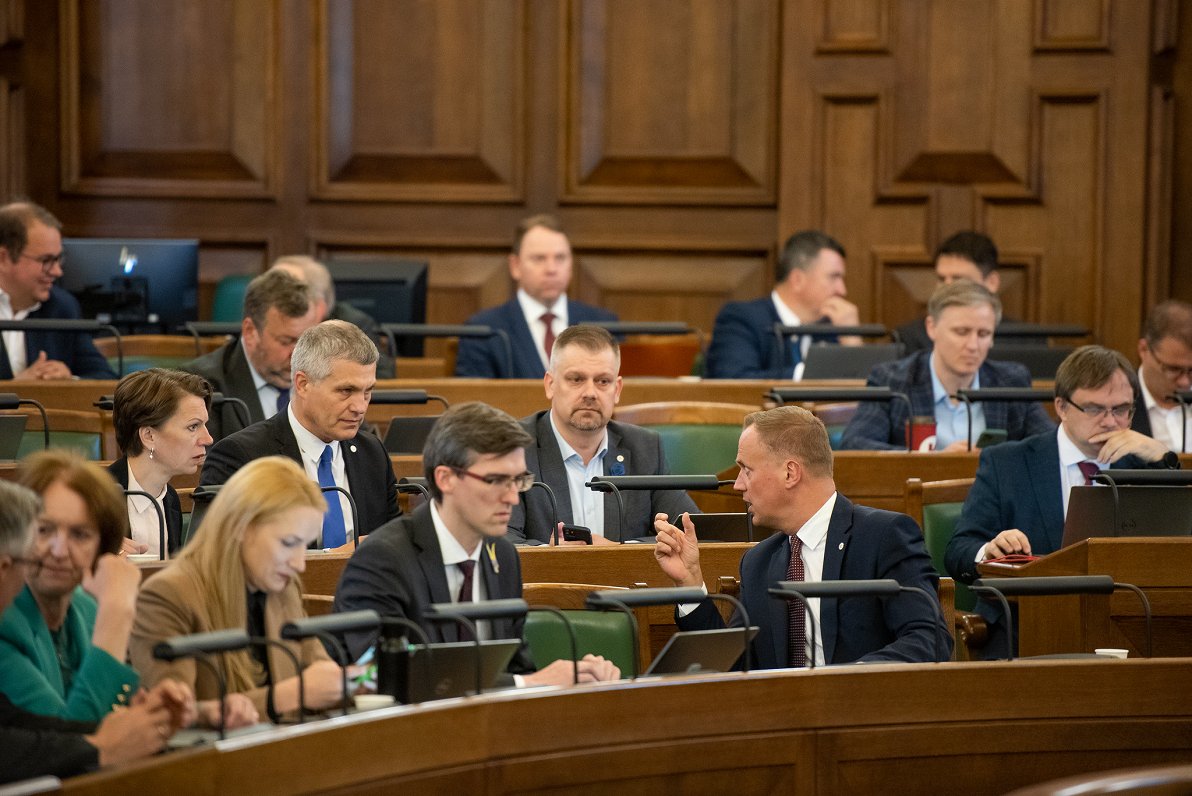In public at least, the three members of the current coalition – the United List, the National Alliance and New Unity – are unsurprisingly talking down the possibility of ructions in government despite their failure to agree on a single candidate for the presidency and the fact that because of this, the support from opposition parties will be needed for a victor to emerge.
That the presidential vote is prompting discussion of the current government model was acknowledged by Raivis Dzintars from the National Alliance, who said: "It seems that New Unity together with the [opposition] Greens and Farmers Union [ZZS] and the Progressives are discussing such a new government model. This threatens that the coalition may by linked to US-sanctioned persons [a reference to Aivars Lembergs] and that the Progressives, who are ideologically distant from us, will be involved.
"If New Unity takes such a risk, then it would remain 52 votes [the same as the current coalition's number of seats]. The National Association will not be involved in such a deal."
Minister of Defense Ināra Mūrniece, also of the National Alliance, repeated the same position on Latvian Television's "Morning Panorāma" show May 19:
"We hear news that New Unity is preparing a new government together with the Green and Farmers' Union and the Progressives. We would like to get more concrete answers, whether such a process is really taking place, and how far it has progressed," said Mūrniece. "National presidential elections are in the background and subordinate [to this process]."
"If a new government is being formed, we would like clarity. We do not plan to join the government with ZZS and the Progressives, Mūrniece reiterated.
Edgars Tavars, chairman of the United List Saeima faction, expressed a similar opinion: "We do not support changes in the coalition. Presidential elections are in no way related to political trading," he said.
On the LTV program "Today's question", Tavars said that the "United List" did not come to the government to "hold on to their seats at all costs".
Meanwhile, New Unity has indicated that its most important task is to secure votes for its presidential candidate, Edgars Rinkēvičs. Negotiations are underway with several parliamentary factions, except for those deemed pro-Russian.
"We are focusing on supporting our candidate. If the result is positive, then after the elections we can talk about who supported whom and what are the hopes and expectations," said Ainars Latkovskis, chairman of the New Unity Saeima faction.
The Greens and Farmers Union (ZZS), which has been working in the opposition for the past four years, does not hide that it wants to get back to the government table.
"It would only be logical that in this situation, when there are so many unwashed dishes piled up on the government's table, to come to the rescue. I think the Greens and Farmers Union is ready to come to the rescue," said veteran Saeima member Augusts Brigmanis (ZZS).
Meanwhile, ZZS board chairman Armands Krauze confirmed that he had participated in negotiations to support Rinkēvičs' candidacy. He said that ZZS would be ready to work in a broader coalition alongside the National Alliance, Progressives, United List and New Unity.
The Progressives emphasized that they are focusing on the upcoming presidential elections, having nominated their own candidate. "There are talks around, modeling, behind-the-scenes talks, but we don't engage in such talks," said Saeima member Atis Švinka.





























